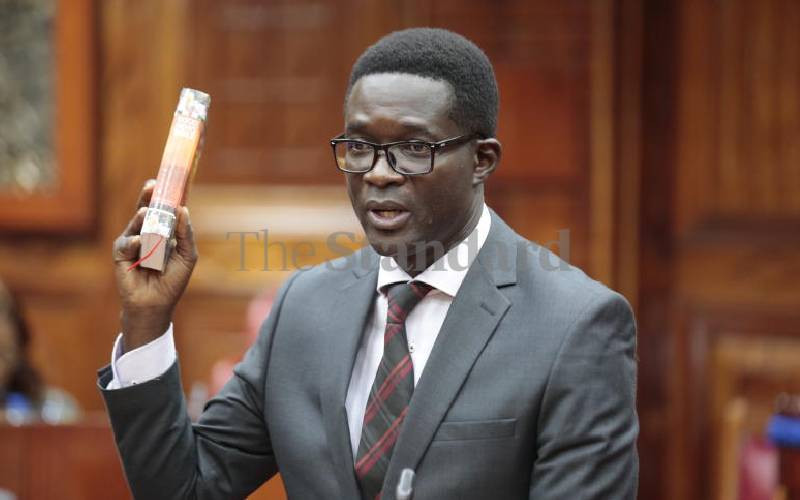
1. What would we do if you or I lost their job?
Job losses are becoming very common nowadays, and sometimes it is beyond one’s control due to redundancy. Ordinarily, job loss brings conflict because most women draw security from money while men draw esteem from money. You should know and discuss changes you would have to make if it were to happen. Would you move to a smaller house? Change the children’s schools? Move upcountry? Sell the cars? Discussing this makes things easier if a need for the fail safe occurs.
2. What system of managing money should we adopt?
Some people prefer to have joint accounts while others prefer to have separate accounts. Having coached people financially for a while, I have learned that none of those methods is wrong. Your choice is based on your values and how good your communication is. Because at the end of the day it is just about disclosure. What I have seen working best is where people have a joint account where all the monies come in. Then, each person takes some money according to their personal budget to a separate account. The larger portion remains in the main account, where all the family bills that have been budgeted for are taken care of such as school fees and investments. The two of you keep each other accountable about spending money from the main account. You can do Electronic Funds Transfers (EFT) where you arrange to have direct transfers into each respective account. That way, everyone maintains some level of independence.
3. Should we provide any financial assistant to our parents and siblings – and to what extent?
If you decide to provide for your relatives, discuss how much and for how long you will do this. Also, when hosting relatives there will be an increase in household costs and the dynamics will change. Make a budget for this. Coming to an agreement together makes you a stronger couple both financially and otherwise.
4. Should we set some of our money aside for giving/tithing?
This could be for charity or for tithe in church. Some people are givers while others are not. Many couples fight because one has the heart for giving but the other does not. In such situations, the giver tends to feel very constrained and will often give in secret. However, it comes out eventually, especially if you are on a strict budget. You need to discuss whether giving is in both of your priorities and if it isn’t, atleast reach a compromise.
5. Who should we have as the next of kin on official documentation?
Surprisingly, many people do not list their spouse as their next of kin in financial documents. Most people list their mothers or siblings. They do not trust that their spouse will continue the financial vision for the family as they had discussed it. Other times, this is not intentional. For instance, they may have filled in the documents back when they were single. That is why it is important to check the status of your documentation and ensure that it serves your current purposes. Sometimes you could even have filled in your parent, who has since passed on. Ideally, your spouse should be your next of kin, but whoever you have filled in should not be a secret, you can discuss reasons as to why it should be that person instead of your spouse. Create a will to avoid battles over your money and properties in the event that you pass on, so that your money will be used as you would have wanted.
6. What are your individual money personalities?
It is rare that two people have the same risk appetite. How people relate with money is shaped by many factors such as experiences and upbringing, so when couples come together they are cultured differently. This extends to how they deal with each other. One spouse could have come from a small family, may be an only child, and thus not used to sharing. The other may have come from a family of many children, so sharing, to them, is not a big deal. It is important to know if you are a risk-taker or risk-averse. If each of you know your own and the other’s personality, you are able to understand your own flaws and that of your spouse. That way, money conversations become easier to handle, you are able to better handle money conflicts and adjust where you can.
7. What is the largest amount one of us should spend without consulting the other?
You cannot discuss every small purchase. You should not have to consult every time before you spend. As much as you are budgeting together, each person has also worked for it individually, so you need to have a say of some sort on how to spend it. You need a level of independence. However, for big purchases, disclosing it to your spouse is good for your financial health and marriage. What counts as a big buy varies on a case by case basis, depending on each family situation. For some people a big buy is an item over sh5,000 , while for another sh50,000. Discuss what your ceiling is. It is not about permission; it is about disclosure.
Stay informed. Subscribe to our newsletter
8. What are our retirement goals?
Every couple needs to define what they want for themselves during their retirement. One spouse may want to retire far from the city, while the other one loves the rush in the city. The planning for retirement needs to begin today. It gets there sooner than most people anticipate. Discuss when each person will retire,having your own home, where you will live and how much money you should have to live well without a regular income. Pension is rarely enough to make ends meet. It would be a smart move to find ways of generating passive income even in retirement.
9. What are your career goals?
This way, your spouse won’t be threatened by your progress. It informs a lot of things, such as spacing of children for some people, whether to keep working or take time off to raise children or study. More money coming in is good but will also mean long meetings, late hours and travel. Deciding to go back to school will mean a dent in your family kitty, so you need to discuss earlier that you intend to do so at some point.
 The Standard Group Plc is a
multi-media organization with investments in media platforms spanning newspaper
print operations, television, radio broadcasting, digital and online services. The
Standard Group is recognized as a leading multi-media house in Kenya with a key
influence in matters of national and international interest.
The Standard Group Plc is a
multi-media organization with investments in media platforms spanning newspaper
print operations, television, radio broadcasting, digital and online services. The
Standard Group is recognized as a leading multi-media house in Kenya with a key
influence in matters of national and international interest.
 The Standard Group Plc is a
multi-media organization with investments in media platforms spanning newspaper
print operations, television, radio broadcasting, digital and online services. The
Standard Group is recognized as a leading multi-media house in Kenya with a key
influence in matters of national and international interest.
The Standard Group Plc is a
multi-media organization with investments in media platforms spanning newspaper
print operations, television, radio broadcasting, digital and online services. The
Standard Group is recognized as a leading multi-media house in Kenya with a key
influence in matters of national and international interest.










